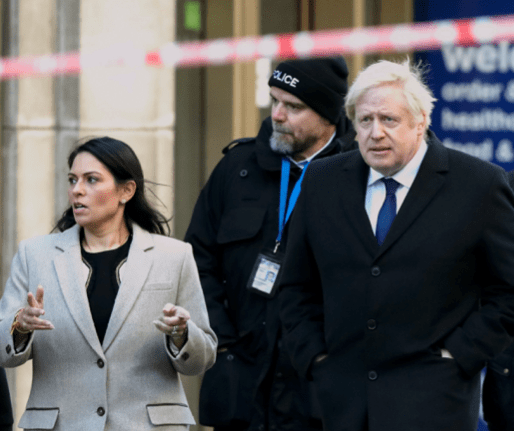On 7th September, a man, brandishing a large knife, stormed the London immigration law firm – Duncan Lewis – with the intention of taking a solicitor hostage. Police said that Cavan Medlock’s weapon of choice was “designed to cause serious harm”, and to act on his threats to kill a firm director. The racially motivated attack was neither random nor isolated.
Four days prior, the Home Secretary, Priti Patel, had condemned “activist lawyers” for frustrating the deportation of migrants. The tweet by Patel appealed to the far-right ideology of Medlock, who intended to display Nazi and US Confederate flags in the office windows during his attack.
Others have argued that Patel is not to blame, and the suggestion that her words incite violence is a thinly veiled attack on freedom of speech. However, according to court documents from the ongoing trial, “accountability for this attack, in the eyes of this firm, lies squarely at the feet of Priti Patel.” The timeline of events would suggest they are linked, and Medlock’s desire to inspire others suggests there is a wider, darker movement. In 2019, more right-wing terrorist plots were foiled than Islamist ones.
Duncan Lewis have since written to the Law Society, urging Patel to end “her untruthful and deliberately inflammatory rhetoric” to “ensure that public attacks on the legal profession are prevented from this point forth.” Furthermore, former Conservative Justice Secretary, David Gauke, condemned the authoritarian nature of the Government. The unease amongst both politicians and lawyers is apparent.
Other law firms have reported receiving threats and hostility and have since hired security to increase protection for staff. Amanda Pinto QC, chair of the Bar Council, reiterated that lawyers should not be political targets for doing their job. Solicitors, through legal aid and pro bono services, provide vulnerable migrants with vital access to legal representation and advice. The Windrush scandal is a prime example of when they are denied this basic right.
Despite calls for calm, the savagery of the Home Office has intensified. At an October Tory Conference, Patel ignored the pleas, instead comparing “lefty lawyers” to traffickers. So far this year, over 7000 migrants have successfully entered the UK after making the perilous journey across the channel. Patel’s pledge to fix the “broken” asylum system does not require her to demonise migrants and the lawyers trying to help them. In reality, most are driven out of desperation and the dream for a better life: a dream that is subsequently exploited by illegal gangs.
Unsurprisingly, Boris Johnson has exacerbated the situation, purporting that the entire criminal justice system is “being hamstrung by lefty human rights lawyers”. The Prime Minister is no stranger to controversy. In 2018, he compared Muslim women wearing burkas to “letter boxes”, prompting reported Islamophobia to surge by 375%. Monitoring group, Tell Mama, also found that several weeks after Johnson’s article was published, 42% of offline Islamophobic incidents “directly referenced Boris Johnson and/or the language used in his column”. Evidently, political rhetoric has a profound effect on public behaviour.
Therefore, the Government must acknowledge the impact of its words, and end its assault on the Rule of Law before innocent lives are lost. The 2016 assassination of MP Jo Cox, who supported refugees and migrants, is an ominous reminder of how ugly the immigration debate can get here in the UK.
Marcus Lindley
Image source: Wikimedia commons

